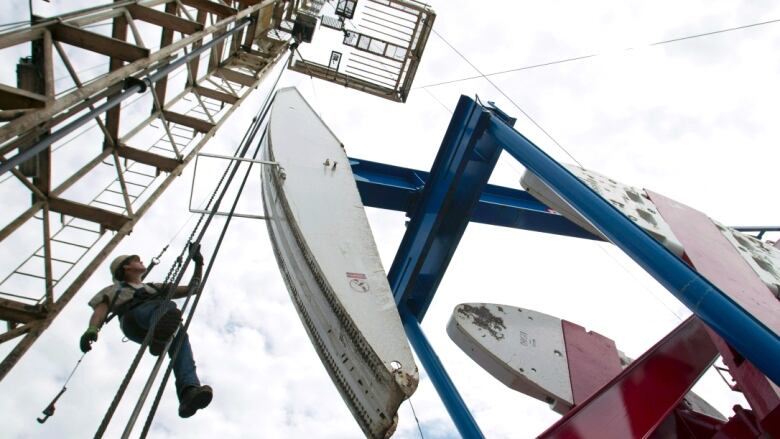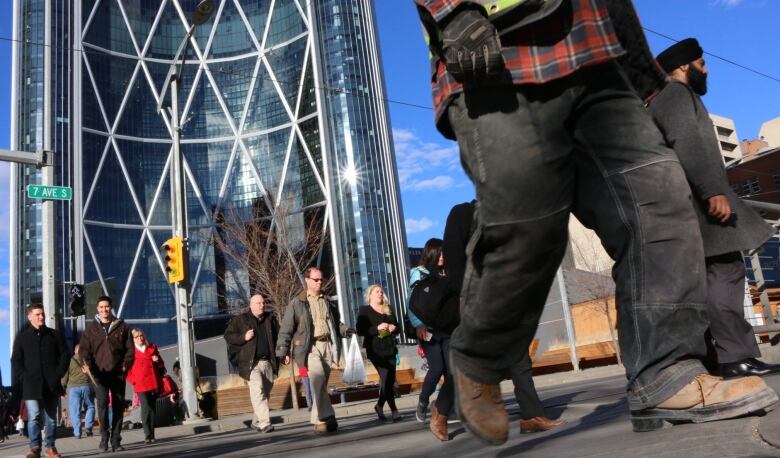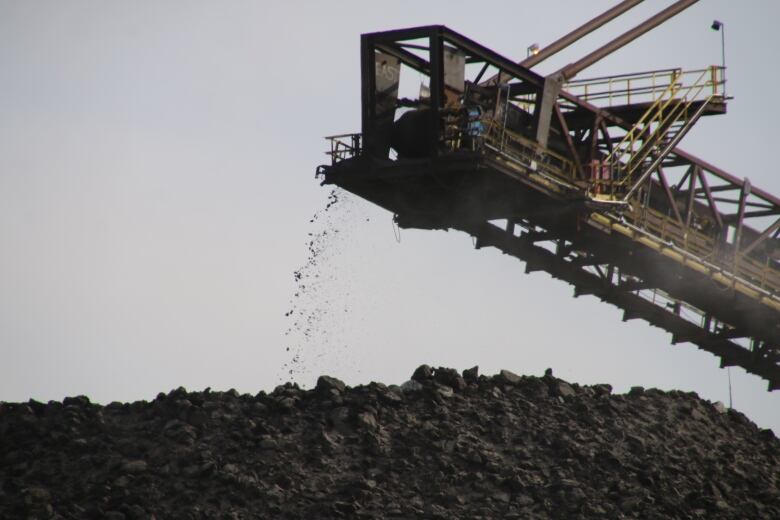OPINION | Alberta's back-to-the-future budget
Kenney's UCP ignores the possibilities of a future it doesn't want to acknowledge

You have to feel for the people who work in Calgary Economic Development's marketing division.
On Oct.16, their CEO announced a $4 million advertising campaign aimed at attracting the talent that Calgary needed to fill the jobs in its burgeoning tech sector.
And then, barely a week later, Premier Jason Kenney cut the legs out from under that very same sector with a budget that eliminated three different tax credits (the Alberta Investor Tax Credit, the Scientific Research and Experimental Development Tax Credit, and the Interactive Digital Media Tax Credit ) it depended on to attract new capital and businesses to the province.
Case in point: East Side Games, a rapidly growing Vancouver-based company, had been considering expanding into Edmonton or Calgary.
In a Facebook post after the budget was released, co-founder and CEO Jason Bailey noted that the combination of affordable office space, an educated population, and tax credits aimed at attracting new investment in new sectors made it a good fit for his company or, at least, it did.
"The message is clear," Bailey wrote. "You like what you have and don't want anything new."
Diversification efforts undermined
If it's any consolation, the tech sector wasn't the only one that was negatively affected by Jason Kenney's back-to-the-future budget.
Even the energy sector's efforts to diversify the economy were undermined, as the partial upgrading program that promised to increase pipeline capacity by as much as 600,000 barrels per day was scrapped.

The Notley government had committed $440 million in loan guarantees in order to get Value Creation Inc. to commit to building a $2 billion upgrader, which would improve upstream price realizations by as much as $15 per barrel and reduce GHG emissions downstream by an estimated 17 per cent.
Now, it seems, that funding is gone and with it, the promise of getting the partial upgrading technologies being developed in the province through the so-called "Valley of Death" problem that stands between a good idea and its commercialization.
"Is there risk in loan guarantees?" Kent Fellows, a professor at the University of Calgary, asked in a tweet. "Yes, but if you have confidence and faith in the industry, and if you take the time to understand these risks (which the province did) then these can be responsible risks."
Instead, the government is embracing an irresponsible risk that should be familiar to most Albertans: waiting for another oil and gas boom.
Going all-in on tax cuts
Rather than relying on tax credits and targeted incentives to attract new investment and help diversify the economy, the Alberta government has gone all-in on the blunter instrument of corporate tax cuts, pledging to reduce them by 33 per cent by 2022-23.
The early returns on this strategy haven't been great, given that Husky Energy, which booked a one-time gain of $233 million as a result of them, still decided to lay off hundreds of employees earlier this month.
But the government's faith in the magic of trickle-down economics was apparently unshaken. Its first budget forecasts a 30 per cent increase in non-renewable resource revenues by 2022-2023, one that will add nearly $2 billion extra to the province's coffers and help swing it from the current $8.7 billion deficit to a $1.8 billion surplus.
A blast from the past
If betting on tax cuts and rising oil prices to save Alberta's fiscal bacon seems like a blast from the past, well, it isn't the only one in their budget. Whether it's the specific funding decisions in it or the broader targets of the cuts it makes, this budget feels like a deliberate attempt to reinforce Alberta's past, rather than build the foundations for its future.
For example, it increases funding for skilled trades programs, but makes getting a bachelor of arts or sciences degree more expensive, and delays funding for essential public transit projects like Calgary's Green Line LRT while setting aside $210 million for improvements to the Deerfoot Trail.
And it scotched the province's fledgling efforts at economic diversification in favour of funding a de-facto public relations campaign for the energy sector.
In his post-budget comments, Finance Minister Travis Toews referred to economic diversification as a "luxury", something that Alberta could turn its attention to only once its budget was balanced.
Alberta could, of course, balance its budget tomorrow if it implemented a modest sales tax. But that would require it to acknowledge that the energy sector has changed permanently, and that while new pipelines to tidewater will increase the profit margins of companies like Suncor and CNRL they will not spur the kind of activity, much less job creation, that Alberta saw in the mid-2000s.
Growing challenges in the oilsands
In a world where peak demand for oil is a question of when, not if, companies are going to be reluctant to sink billions of dollars into new oilsands projects that will take upwards of a decade to return their initial investment.

That's particularly true in light of the lawsuit brought against ExxonMobil by the attorney general of New York, which alleges that the company which controls Imperial Oil, one of the biggest operators in the oilsands underestimated the impact of carbon pricing and other forms of climate action on the value of its Canadian assets.
As the Canadian Press reported, "the documents allege Exxon lowballed by $30 billion the impact of carbon pricing on 14 Alberta oilsands projects. They claim carbon costs at the Kearl project in northern Alberta were understated by 94 per cent."
That's just a claim, of course, and it remains to be tested in court. But it won't be the last time companies like Imperial have to account for the impact of climate change on the value of their operations, and it speaks to the growing challenges that long-life assets like major oilsands projects face and the dwindling odds that another new one will be built in Alberta.
It was those massive oilsands projects, built from scratch and requiring billions of dollars in capital and millions of hours of labour, that created the version of Alberta that many fondly look back on right now including its provincial government.
But that Alberta is almost certainly gone forever.
A new reality
Calgary Economic Development CEO Mary Moran, for one, has been quite clear about this new reality.
The downturn of the last five years has forced energy companies to find ways to reduce their operating costs, and that's often involved replacing people with technology and automation. Those changes won't be reversed if the price of oil rises in the near-term, either.
"Energy companies have reduced their staff by more than half," Moran told the Financial Post in May. "Many that I've talked to don't believe they'll be adding employees like they did in the last cycle."
This isn't unique to Alberta, either.
In Texas, where oil and gas companies have no problems with access to either tidewater or federal politicians willing to sing their praises, and where production has soared since 2016, nearly half of the jobs that were lost during the 2014-16 downturn haven't come back.
Even in the prolific Permian basin, job growth this year has been essentially flat.
Quite simply, it takes fewer human beings to produce a barrel of oil today than it did five years ago and there isn't a corporate tax cut big enough in the world that could change that.
Empty office towers
That's why Moran's organization tried to get Amazon to build its second headquarters in Calgary. That's why it supported the 2026 Olympic Bid. And that's why it decided to spend millions of dollars on a campaign encouraging tech companies like East Side Games to relocate or expand in Calgary.
As Moran said, if the city is to fill its suddenly and starkly vacant corporate office towers, it can't rely on the oil and gas sector the way it once did. "We're going to have to fill that space with different people."
Thanks to Thursday's budget, it won't be people like Jason Bailey or his company who fill it. It won't be people involved in efforts to diversify the energy sector, either.
Instead, the towers will remain conspicuously empty as the government waits for the return of a past that's destined to stay there and ignores the possibilities of a future it doesn't want to acknowledge.
This column is an opinion. For more information about our commentary section, please read thiseditor's blogandour FAQ.













_(720p).jpg)


 OFFICIAL HD MUSIC VIDEO.jpg)
.jpg)



























































































